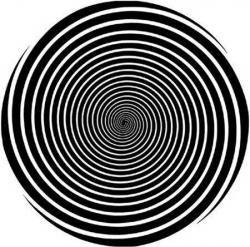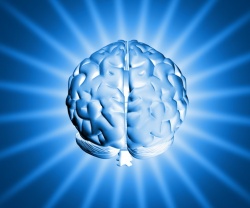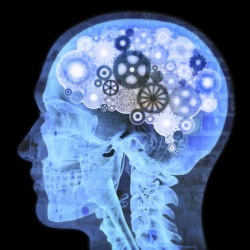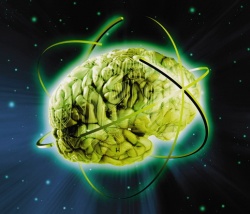Difference between revisions of "Philosophy"
| Line 23: | Line 23: | ||
{{Wiki|Modern}} [[rationalism]] begins with {{Wiki|Descartes}}. {{Wiki|Reflection}} on the [[nature]] of {{Wiki|perceptual}} [[experience]], as well as [[scientific]] discoveries in [[physiology]] and optics, led {{Wiki|Descartes}} (and also Locke) to the view that we are directly {{Wiki|aware}} of [[ideas]], rather than [[objects]]. This view gave rise to three questions: | {{Wiki|Modern}} [[rationalism]] begins with {{Wiki|Descartes}}. {{Wiki|Reflection}} on the [[nature]] of {{Wiki|perceptual}} [[experience]], as well as [[scientific]] discoveries in [[physiology]] and optics, led {{Wiki|Descartes}} (and also Locke) to the view that we are directly {{Wiki|aware}} of [[ideas]], rather than [[objects]]. This view gave rise to three questions: | ||
| − | # Is an [[idea]] a true copy of the real thing that it represents? [[Sensation]] is not a direct interaction between [[bodily]] [[objects]] and our [[sense]], but is a [[physiological]] process involving [[representation]] (for example, an image on the {{Wiki|retina}}). Locke [[thought]] that a "secondary quality" such as a [[sensation]] of green could in no way resemble the arrangement of {{Wiki|particles}} in {{Wiki|matter}} that go to produce this [[sensation]] , although he [[thought]] that "primary qualities" such as shape, size, number, were really in [[objects]]. | + | # Is an [[idea]] a true copy of the real thing that it represents? [[Sensation]] is not a direct interaction between [[bodily]] [[objects]] and our [[sense]], but is a [[physiological]] process involving [[representation]] (for example, an image on the {{Wiki|retina}}). Locke [[thought]] that a "secondary [[quality]]" such as a [[sensation]] of green could in no way resemble the arrangement of {{Wiki|particles}} in {{Wiki|matter}} that go to produce this [[sensation]] , although he [[thought]] that "primary qualities" such as shape, size, number, were really in [[objects]]. |
# How can [[physical]] [[objects]] such as chairs and tables, or even {{Wiki|physiological}} {{Wiki|processes}} in the {{Wiki|brain}}, give rise to [[mental]] items such as [[ideas]]? This is part of what became known as the [[mind]] -[[body]] problem. | # How can [[physical]] [[objects]] such as chairs and tables, or even {{Wiki|physiological}} {{Wiki|processes}} in the {{Wiki|brain}}, give rise to [[mental]] items such as [[ideas]]? This is part of what became known as the [[mind]] -[[body]] problem. | ||
# If all the contents of [[awareness]] are [[ideas]], how can we know that anything [[exists]] apart from [[ideas]]? | # If all the contents of [[awareness]] are [[ideas]], how can we know that anything [[exists]] apart from [[ideas]]? | ||
| Line 31: | Line 31: | ||
===[[Logic]]=== | ===[[Logic]]=== | ||
| − | [[Logic]] is the study of the {{Wiki|principles}} of correct {{Wiki|reasoning}}. Arguments use either [[deductive reasoning]] or [[inductive reasoning]]. [[Deductive reasoning]] is when, given certain statements (called premises), other statements (called conclusions) are unavoidably implied. Rules of inferences from premises include the most popular method, modus ponens, where given “A” and “If A then B”, then “B” must be concluded. A common convention for a {{Wiki|deductive}} argument is the [[syllogism]]. An argument is termed valid if its conclusion does indeed follow from its premises, whether the premises are true or not, while an argument is [[sound]] if its conclusion follows from premises that are true. Propositional [[logic]] uses premises that are propositions, which are declarations that are either true or false, while predicate [[logic]] uses more complex premises called formulae that contain variables. These can be assigned values or can be quantified as to when they apply with the [[universal]] quantifier (always apply) or the [[existential]] quantifier (applies at least once). [[Inductive reasoning]] makes conclusions or generalizations based on probabilistic {{Wiki|reasoning}}. For example, if “90% of [[humans]] are right-handed” and “Joe is [[human]]” then “Joe is probably right-handed”. Fields in [[logic]] include {{Wiki|mathematical}} [[logic]] (formal [[symbolic]] [[logic]] ) and [[philosophical]] [[logic]] . | + | [[Logic]] is the study of the {{Wiki|principles}} of correct {{Wiki|reasoning}}. Arguments use either [[deductive reasoning]] or [[inductive reasoning]]. [[Deductive reasoning]] is when, given certain statements (called premises), other statements (called conclusions) are unavoidably implied. Rules of inferences from premises include the most popular method, [[modus ponens]], where given “A” and “If A then B”, then “B” must be concluded. A common convention for a {{Wiki|deductive}} argument is the [[syllogism]]. An argument is termed valid if its conclusion does indeed follow from its premises, whether the premises are true or not, while an argument is [[sound]] if its conclusion follows from premises that are true. Propositional [[logic]] uses premises that are propositions, which are declarations that are either true or false, while predicate [[logic]] uses more complex premises called formulae that contain variables. These can be assigned values or can be quantified as to when they apply with the [[universal]] quantifier (always apply) or the [[existential]] quantifier (applies at least once). [[Inductive reasoning]] makes conclusions or generalizations based on probabilistic {{Wiki|reasoning}}. For example, if “90% of [[humans]] are right-handed” and “Joe is [[human]]” then “Joe is probably right-handed”. Fields in [[logic]] include {{Wiki|mathematical}} [[logic]] (formal [[symbolic]] [[logic]] ) and [[philosophical]] [[logic]] . |
===[[Metaphysics]] === | ===[[Metaphysics]] === | ||
| Line 39: | Line 39: | ||
Within [[metaphysics]] itself there are a wide range of differing [[philosophical]] theories. {{Wiki|Idealism}}, for example, is the [[belief]] that [[reality]] is [[mentally]] [[constructed]] or otherwise {{Wiki|immaterial}} while [[realism]] holds that [[reality]] , or at least some part of it, [[exists]] {{Wiki|independently}} of the [[mind]] . [[Subjective]] {{Wiki|idealism}} describes [[objects]] as no more than collections or "bundles" of [[sense]] {{Wiki|data}} in the {{Wiki|perceiver}}. The 18th century [[philosopher]] {{Wiki|George Berkeley}} contended that [[existence]] is fundamentally tied to [[perception]] with the [[phrase]] Esse est aut percipi aut percipere or "To be is to be [[perceived]] or to {{Wiki|perceive}}". | Within [[metaphysics]] itself there are a wide range of differing [[philosophical]] theories. {{Wiki|Idealism}}, for example, is the [[belief]] that [[reality]] is [[mentally]] [[constructed]] or otherwise {{Wiki|immaterial}} while [[realism]] holds that [[reality]] , or at least some part of it, [[exists]] {{Wiki|independently}} of the [[mind]] . [[Subjective]] {{Wiki|idealism}} describes [[objects]] as no more than collections or "bundles" of [[sense]] {{Wiki|data}} in the {{Wiki|perceiver}}. The 18th century [[philosopher]] {{Wiki|George Berkeley}} contended that [[existence]] is fundamentally tied to [[perception]] with the [[phrase]] Esse est aut percipi aut percipere or "To be is to be [[perceived]] or to {{Wiki|perceive}}". | ||
| − | In addition to the aforementioned [[views]], however, there is also an [[Wikipedia:Ontology|ontological]] {{Wiki|dichotomy}} within [[metaphysics]] between the [[Wikipedia:concept|concepts]] of particulars and universals as well. Particulars are those [[objects]] that are said to [[exist]] in {{Wiki|space and time}}, as opposed to abstract [[objects]], such as numbers. Universals are properties held by multiple particulars, such as redness or a [[gender]] . The type of [[existence]], if any, of universals and abstract [[objects]] is an issue of serious [[debate]] within [[metaphysical]] [[philosophy]] . [[Realism]] is the [[philosophical]] position that universals do in fact [[exist]], while {{Wiki|nominalism}} is the {{Wiki|negation}}, or {{Wiki|denial}} of universals, abstract [[objects]], or both. Conceptualism holds that universals [[exist]], but only within the [[mind]] 's [[perception]] . | + | In addition to the aforementioned [[views]], however, there is also an [[Wikipedia:Ontology|ontological]] {{Wiki|dichotomy}} within [[metaphysics]] between the [[Wikipedia:concept|concepts]] of particulars and universals as well. Particulars are those [[objects]] that are said to [[exist]] in {{Wiki|space and time}}, as opposed to abstract [[objects]], such as numbers. Universals are properties held by multiple particulars, such as redness or a [[gender]] . The type of [[existence]], if any, of universals and abstract [[objects]] is an issue of serious [[debate]] within [[metaphysical]] [[philosophy]] . [[Realism]] is the [[philosophical]] position that universals do in fact [[exist]], while {{Wiki|nominalism}} is the {{Wiki|negation}}, or {{Wiki|denial}} of universals, abstract [[objects]], or both. [[Conceptualism]] holds that universals [[exist]], but only within the [[mind]] 's [[perception]] . |
The question of whether or not [[existence]] is a predicate has been discussed since the Early {{Wiki|Modern}} period. [[Essence]] is the set of [[attributes]] that make an [[object]] what it fundamentally is and without which it loses its [[Wikipedia:Identity (social science)|identity]]. [[Essence]] is contrasted with accident: a property that the [[substance]] has contingently, without which the [[substance]] can still retain its [[Wikipedia:Identity (social science)|identity]]. | The question of whether or not [[existence]] is a predicate has been discussed since the Early {{Wiki|Modern}} period. [[Essence]] is the set of [[attributes]] that make an [[object]] what it fundamentally is and without which it loses its [[Wikipedia:Identity (social science)|identity]]. [[Essence]] is contrasted with accident: a property that the [[substance]] has contingently, without which the [[substance]] can still retain its [[Wikipedia:Identity (social science)|identity]]. | ||
Revision as of 16:55, 18 April 2015
Philosophy is the study of general and fundamental problems, such as those connected with reality , existence, knowledge, values, reason , mind , and language. Philosophy is distinguished from other ways of addressing such problems by its critical, generally systematic approach and its reliance on rational argument. In more casual speech , by extension, "philosophy " can refer to "the most basic beliefs, concepts, and attitudes of an individual or group".
The word "philosophy " comes from the Ancient Greek φιλοσοφία (philosophia), which literally means "love of wisdom ". The introduction of the terms "philosopher " and "philosophy " has been ascribed to the Greek thinker Pythagoras.
Areas of inquiry
Philosophy is divided into many sub-fields. These include epistemology , logic , metaphysics , ethics , and aesthetics. Some of the major areas of study are considered individually below.
Epistemology
Epistemology is concerned with the nature and scope of knowledge , such as the relationships between truth , belief, and theories of justification.
Skepticism is the position which questions the possibility of completely justifying any truth . The regress argument, a fundamental problem in epistemology , occurs when, in order to completely prove any statement P, its justification itself needs to be supported by another justification. This chain can do three possible options, all of which are unsatisfactory according to the Münchhausen trilemma. One option is infinitism, where this chain of justification can go on forever. Another option is foundationalism, where the chain of justifications eventually relies on basic beliefs or axioms that are left unproven. The last option, such as in coherentism, is making the chain circular so that a statement is included in its own chain of justification.
Rationalism is the emphasis on reasoning as a source of knowledge . Empiricism is the emphasis on observational evidence via sensory experience over other evidence as the source of knowledge. Rationalism claims that every possible object of knowledge can be deduced from coherent premises without observation. Empiricism claims that at least some knowledge is only a matter of observation. For this, Empiricism often cites the concept of tabula rasa, where individuals are not born with mental content and that knowledge builds from experience or perception. Epistemological solipsism is the idea that the existence of the world outside the mind is an unresolvable question.
Parmenides (fl. 500 BC) argued that it is impossible to doubt that thinking actually occurs. But thinking must have an object, therefore something beyond thinking really exists. Parmenides deduced that what really exists must have certain properties—for example, that it cannot come into existence or cease to exist, that it is a coherent whole, that it remains the same eternally (in fact, exists altogether outside time). This is known as the third man argument. Plato (427–347 BC) combined rationalism with a form of realism. The philosopher 's work is to consider being, and the essence (ousia) of things. But the characteristic of essences is that they are universal . The nature of a man, a triangle, a tree , applies to all men, all triangles, all trees . Plato argued that these essences are mind-independent "forms", that humans (but particularly philosophers ) can come to know by reason , and by ignoring the distractions of sense-perception .
Modern rationalism begins with Descartes. Reflection on the nature of perceptual experience, as well as scientific discoveries in physiology and optics, led Descartes (and also Locke) to the view that we are directly aware of ideas, rather than objects. This view gave rise to three questions:
- Is an idea a true copy of the real thing that it represents? Sensation is not a direct interaction between bodily objects and our sense, but is a physiological process involving representation (for example, an image on the retina). Locke thought that a "secondary quality" such as a sensation of green could in no way resemble the arrangement of particles in matter that go to produce this sensation , although he thought that "primary qualities" such as shape, size, number, were really in objects.
- How can physical objects such as chairs and tables, or even physiological processes in the brain, give rise to mental items such as ideas? This is part of what became known as the mind -body problem.
- If all the contents of awareness are ideas, how can we know that anything exists apart from ideas?
Descartes tried to address the last problem by reason . He began, echoing Parmenides, with a principle that he thought could not coherently be denied: I think, therefore I am (often given in his original Latin: Cogito ergo sum). From this principle, Descartes went on to construct a complete system of knowledge (which involves proving the existence of God , using, among other means, a version of the ontological argument). His view that reason alone could yield substantial truths about reality strongly influenced those philosophers usually considered modern rationalists (such as Baruch Spinoza, Gottfried Leibniz, and Christian Wolff), while provoking criticism from other philosophers who have retrospectively come to be grouped together as empiricists.
Logic
Logic is the study of the principles of correct reasoning. Arguments use either deductive reasoning or inductive reasoning. Deductive reasoning is when, given certain statements (called premises), other statements (called conclusions) are unavoidably implied. Rules of inferences from premises include the most popular method, modus ponens, where given “A” and “If A then B”, then “B” must be concluded. A common convention for a deductive argument is the syllogism. An argument is termed valid if its conclusion does indeed follow from its premises, whether the premises are true or not, while an argument is sound if its conclusion follows from premises that are true. Propositional logic uses premises that are propositions, which are declarations that are either true or false, while predicate logic uses more complex premises called formulae that contain variables. These can be assigned values or can be quantified as to when they apply with the universal quantifier (always apply) or the existential quantifier (applies at least once). Inductive reasoning makes conclusions or generalizations based on probabilistic reasoning. For example, if “90% of humans are right-handed” and “Joe is human” then “Joe is probably right-handed”. Fields in logic include mathematical logic (formal symbolic logic ) and philosophical logic .
Metaphysics
Metaphysics is the study of the most general features of reality , such as existence, time, the relationship between mind and body , objects and their properties, wholes and their parts, events, processes, and causation . Traditional branches of metaphysics include cosmology, the study of the world in its entirety, and ontology, the study of being.
Within metaphysics itself there are a wide range of differing philosophical theories. Idealism, for example, is the belief that reality is mentally constructed or otherwise immaterial while realism holds that reality , or at least some part of it, exists independently of the mind . Subjective idealism describes objects as no more than collections or "bundles" of sense data in the perceiver. The 18th century philosopher George Berkeley contended that existence is fundamentally tied to perception with the phrase Esse est aut percipi aut percipere or "To be is to be perceived or to perceive".
In addition to the aforementioned views, however, there is also an ontological dichotomy within metaphysics between the concepts of particulars and universals as well. Particulars are those objects that are said to exist in space and time, as opposed to abstract objects, such as numbers. Universals are properties held by multiple particulars, such as redness or a gender . The type of existence, if any, of universals and abstract objects is an issue of serious debate within metaphysical philosophy . Realism is the philosophical position that universals do in fact exist, while nominalism is the negation, or denial of universals, abstract objects, or both. Conceptualism holds that universals exist, but only within the mind 's perception .
The question of whether or not existence is a predicate has been discussed since the Early Modern period. Essence is the set of attributes that make an object what it fundamentally is and without which it loses its identity. Essence is contrasted with accident: a property that the substance has contingently, without which the substance can still retain its identity.
Read more from Wikipedia:Philosophy



